Lewis Hamilton v Nico Rosberg: Mercedes have a problem
- Published
- comments
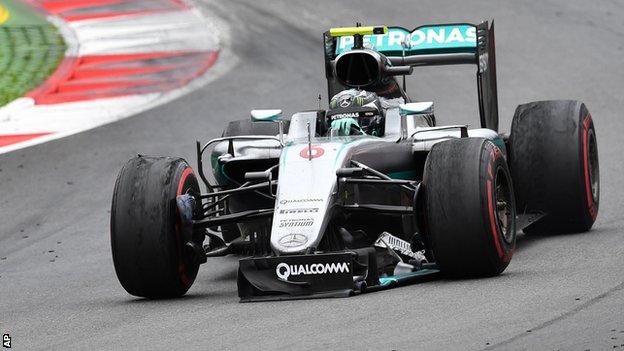
Nico Rosberg holds an 11-point lead over Lewis Hamilton with 12 races of the season left
Mercedes Formula 1 boss Toto Wolff has a problem - and he knows it.
How does he handle two intensely ambitious racing drivers competing for the world title in his team while also protecting the interests of the global corporation behind it?
There is no easy answer.
For Wolff - as for any F1 team boss - the golden rule is always that team-mates must not crash into each other. Lewis Hamilton and Nico Rosberg have now broken it twice in the last five races.
In Austria on Sunday, a collision on the last lap cost Mercedes what would have been a one-two finish. Hamilton successfully - in the end - passed Rosberg for the lead, and Rosberg slipped back to finish fourth with no front wing.
In Spain back in May, another one-two went begging - this time when they crashed out on the first lap.
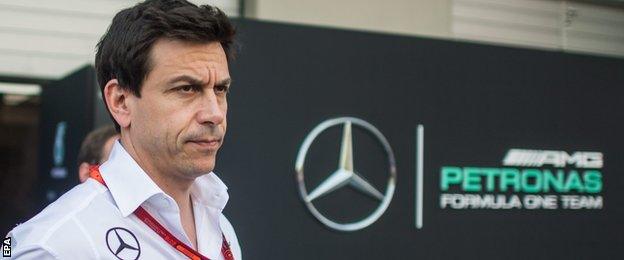
Mercedes boss Toto Wolff has the look of a man who might need to consider team orders
The incidents were very different. But what they shared was that Hamilton was trying to pass Rosberg after the German had made a mistake, and Rosberg refused to let it happen. Or at least tried to, in the case of Austria.
Whose fault was it?
The drivers, unsurprisingly, blamed each other.
Wolff said he "had an opinion" but refused to say what it was, while Mercedes non-executive chairman Niki Lauda said initially that the fact they hit each other was "I think, Nico's fault - although I have to see it again".
Outside Mercedes, virtually all pundits and ex-drivers who expressed an opinion on the incident were unanimous - Rosberg was to blame this time. Crucially, so did the stewards.
Why? Because Rosberg had not turned in when he should have.
What happened exactly?
On-board camera shots were clear. Hamilton was on the outside and marginally ahead when they reached the turn-in point for the corner. But Rosberg kept going straight on.
When he did finally turn - way beyond where he would normally - he does not attempt to make the full corner, but turns the wheel considerably less than that.
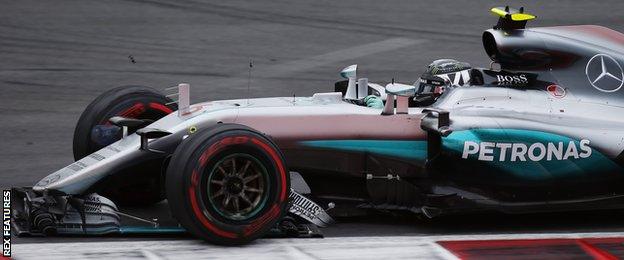
"Guilty? Moi?" Rosberg tries, unsuccessfully, not to look like he is driving a damaged car around to the finish line
The issue is that Rosberg did not look to be trying to make the corner - he seemed intent only on keeping Hamilton on the outside.
Yes, the initial collision comes as Hamilton finally tries to turn in, but most ex-drivers and experienced observers would say that he had no choice at that point. Again, the stewards agreed.
Parallels will inevitably be drawn with two incidents between the two last year - in the Japanese and US Grands Prix.
In both, Hamilton was on the inside and ran Rosberg out of road on the exit of the corner.
But that is an accepted - if hard - tactic in racing. Whereas what Rosberg did was not acceptable, by the standards by which these incidents are judged.
Rosberg contended that he had "always left him track space". But the key was in the phrase the stewards used - Rosberg did not allow Hamilton "racing room", they said.
Hamilton was "in front - i.e. more than fully alongside and could have clearly made the turn, if not for the resultant collision."
The phrase "racing room" does not appear anywhere in the regulations but the decision was based on an understanding of which all drivers are aware.
That is that when a driver is attempting to pass on the outside, if he is fully alongside he has the right to be given room on the exit. In this case, they never even got that far - Rosberg did not even allow him room on the entry.
What is the back story?
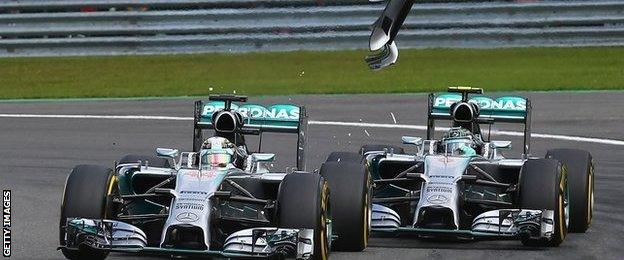
Belgium 2014: Rosberg's fault, and led to the German losing his edge for some time
Although the problem for Mercedes is not so much who was at fault as why it keeps happening and what to do about it, the two things may well be interlinked.
Wolff said he was "fed up with trying to analyse it - I just don't want any contact." He added that "all options" were on the table.
"One option is to freeze the order at a certain point in the race, which is unpopular and makes me (want to) puke myself but if the racing is not possible without contact that is a consequence," said Wolff.
"I have to cool down a little bit and in the next couple of days figure it out."
In doing so, he will have to consider what role is being played by the raised stakes compared to last year and even 2014.
In 2015, Hamilton got a flying start to the season and never looked back. The way things worked out, he and Rosberg were hardly ever racing together.
It was a similar situation in 2014, with two exceptions - in Bahrain, when they raced cleanly and brilliantly and Hamilton came out on top, and Austin, when Hamilton chased his team-mate down and passed him fairly to win.
Has Rosberg's approach changed?
This year is different. Hamilton finds himself playing catch-up again, but this time he seems to be facing a more formidable and resolute competitor.
Until this year, Hamilton always seemed to come off better when the two were battling closely and he remains the more instinctive natural racer.
Austria showed once again that Rosberg does not have the same instinctive feel for wheel-to-wheel duels - if he was going to give Hamilton the choice of going wide or colliding, it was not a great idea to do it in a way that ensured his car would be the one that was damaged. But Rosberg seems to have coupled it with a harder edge to his approach.
It is impossible to get him to admit it, but the loss of the title so comprehensively last year seems to have had an effect on his mindset.
He seems tougher and more determined than before, less willing to give in to the inner demons that tell him - correctly - that, all things being equal, Hamilton will be faster than him more often than not. And less willing to back down on the track, too.

Spain 2016: A "racing incident", according to stewards



Rosberg brushes off questions about it, says he is focused only on the now. But it looks from the outside as if he has realised that he may never have a better chance to win the world title than this year when, lest we forget, he was 43 points clear after just four races.
Spain was the next race after Rosberg established that formidable lead, and he started it by taking the lead with an audacious and highly skilled move around the outside of Hamilton at the first corner.
Two corners later, after he had been delayed by being in the wrong engine mode, his defence against Hamilton trying to re-take the lead was aggressive in the extreme.
Technically, it could be argued he broke in Barcelona the rule that demands drivers leave a rival a car's width of space on the approach to a corner if they have a "significant" part of their car alongside.
The move was adjudged just within the letter of the regulations, on the basis of how quickly events had unfolded, and the crash filed as a "racing incident", in which neither driver was specifically to blame
But now there is Austria, and another incident in which Rosberg has gone right out to the very edges of ruthlessness - and beyond, the stewards say, in this case.
Hamilton also on a mission
Meanwhile, Hamilton is already nursing a sense of injustice about this year - as a result of the engine problems that wrecked his races in China and Russia and have left him likely to suffer grid penalties down the line for using too many engine parts.
In Austria, Hamilton should never have been behind Rosberg in the race, having led the first stint so comprehensively.
When Hamilton emerged behind Rosberg from his first pit stop - thanks to a problem with the left-rear wheel - he was surprised but was reassured that his team-mate had to stop again.
So it was little wonder that Hamilton admitted to finding it "a little bit disturbing initially" to be switched to a two-stop and find Rosberg was still in front once the stops were completed. Three hours after the race, he said: "I didn't understand it and I still don't - I'm sure they will explain it later."
When they do, they will tell him that only a problem with his left-rear wheel at his first stop prevented him rejoining in the lead - and that they organised it so he would pass Rosberg at the second stops with the so-called 'undercut', only for another slow stop and a subsequent error from Hamilton in running wide at Turn Two on his out lap to scupper the plan.
Hamilton did not know that in the race, so what was his mindset out on track at the time?
"I let it go over my head," he said, "and kept pushing, thinking: 'If I am going to win this world title, I am going to have to dig deep.' I gave everything I had today. I feel proud I didn't leave any stone unturned."
As for Rosberg, even after his penalty he was still protesting his innocence.
A way out of the crisis?
So Mercedes are faced with a dominant character who believes in his own fundamental superiority and another, hard-headed to the point of stubbornness, who is determined to take the best chance he has ever had.
Wolff clearly does not want to impose team orders on the drivers but somehow he has to create some rules of engagement to ensure they don't keep crashing into each other.
Painless it won't be, but handling the fall-out of Austria and containing it over the remaining 12 races might be that bit easier because there is an obviously guilty party.
- Published4 July 2016
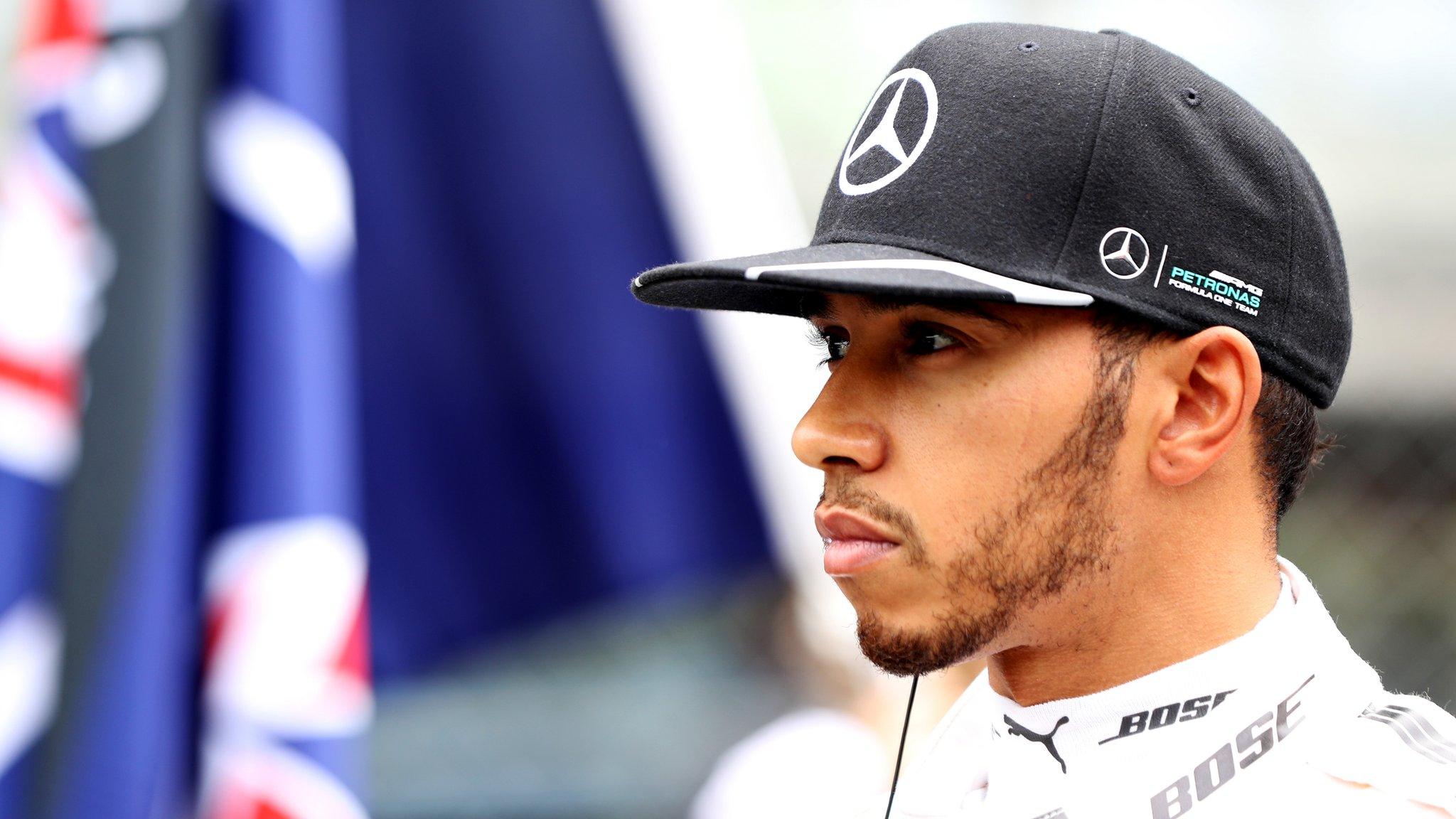
- Published5 July 2016
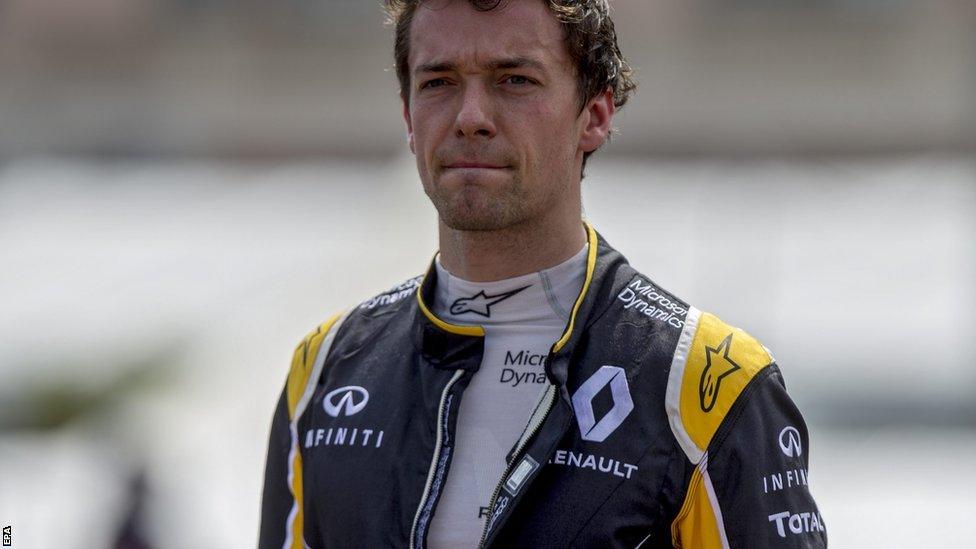
- Published8 November 2016
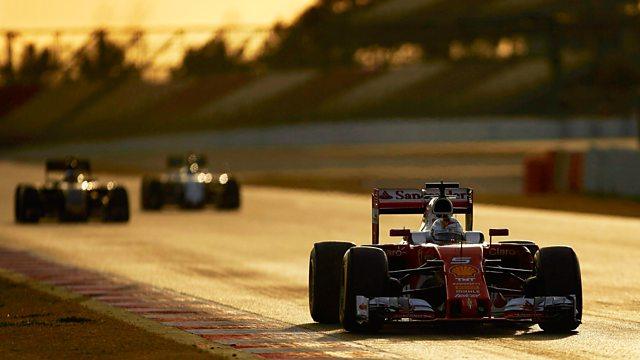
- Published3 July 2016
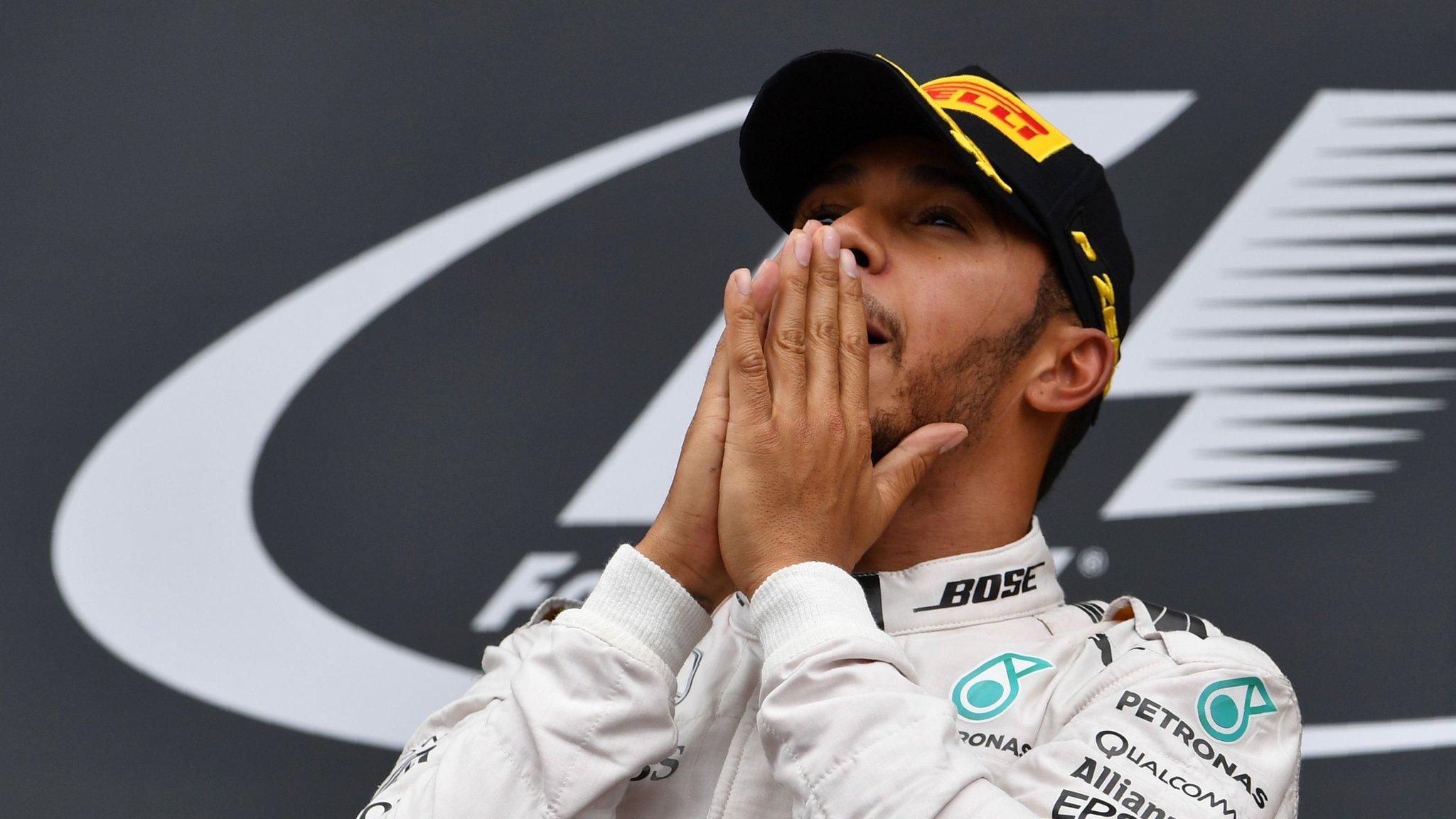
- Published3 July 2016
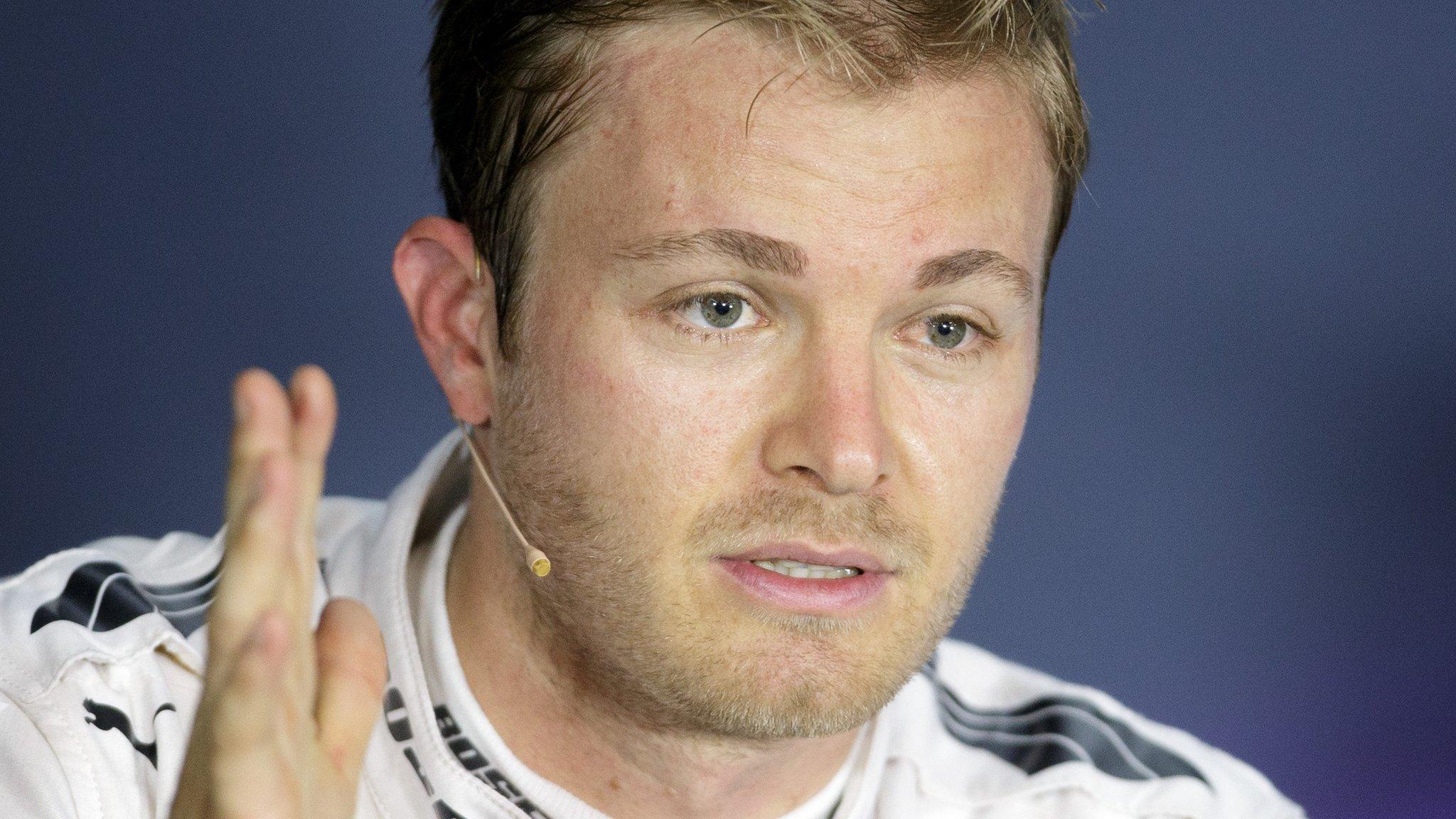
- Published3 July 2016
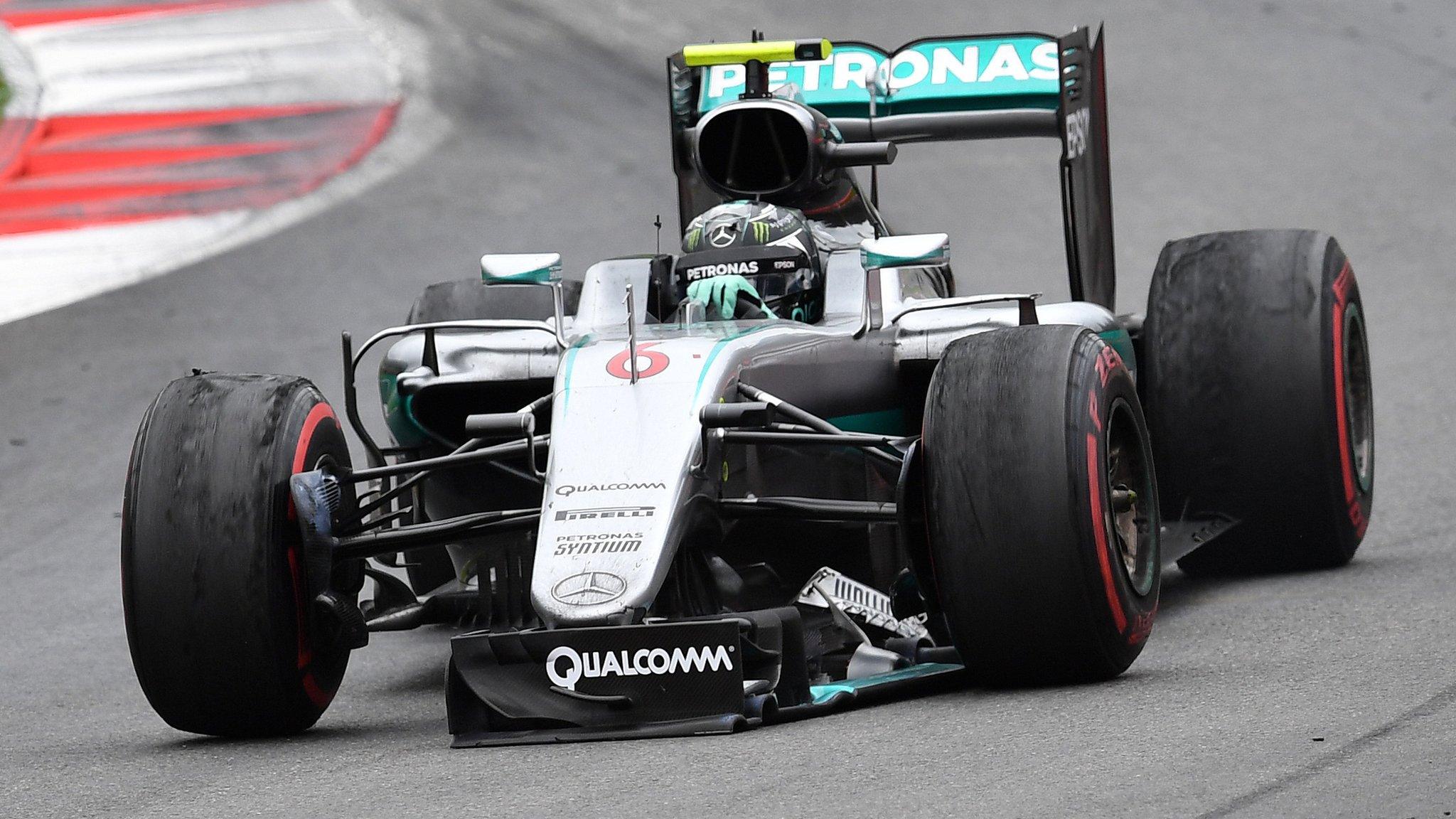
- Published28 June 2016
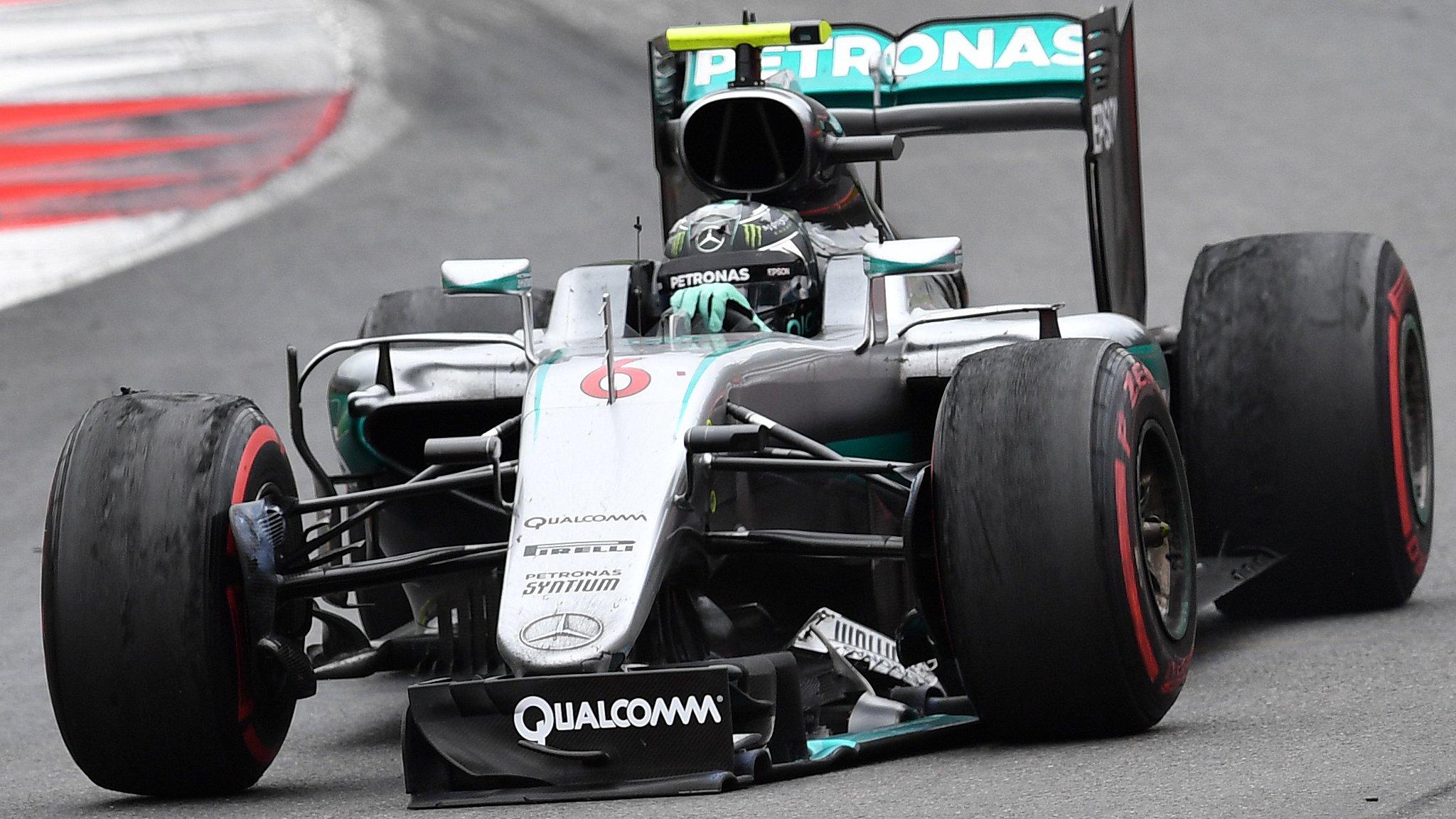
- Published2 July 2016
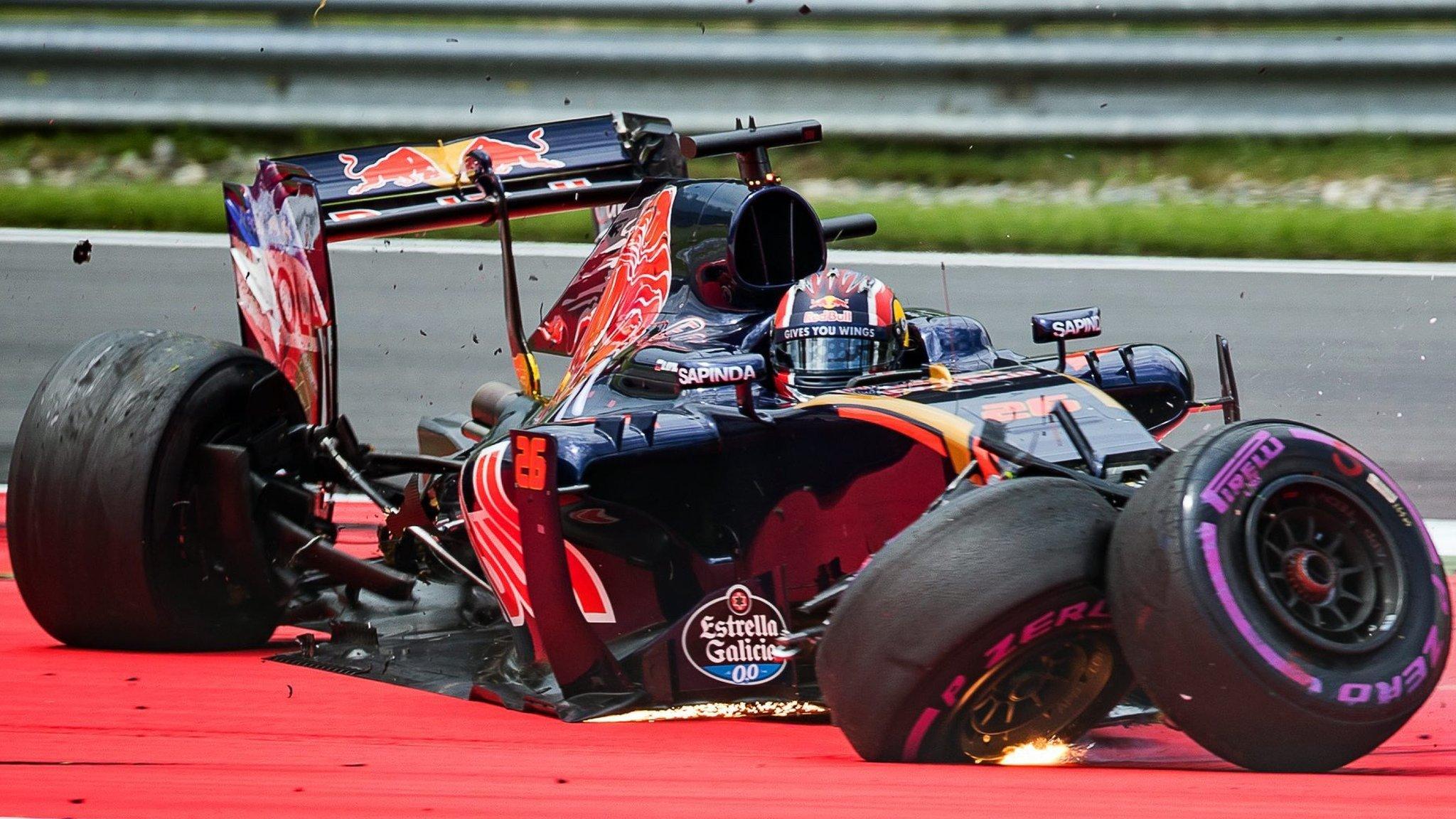
- Published2 July 2016
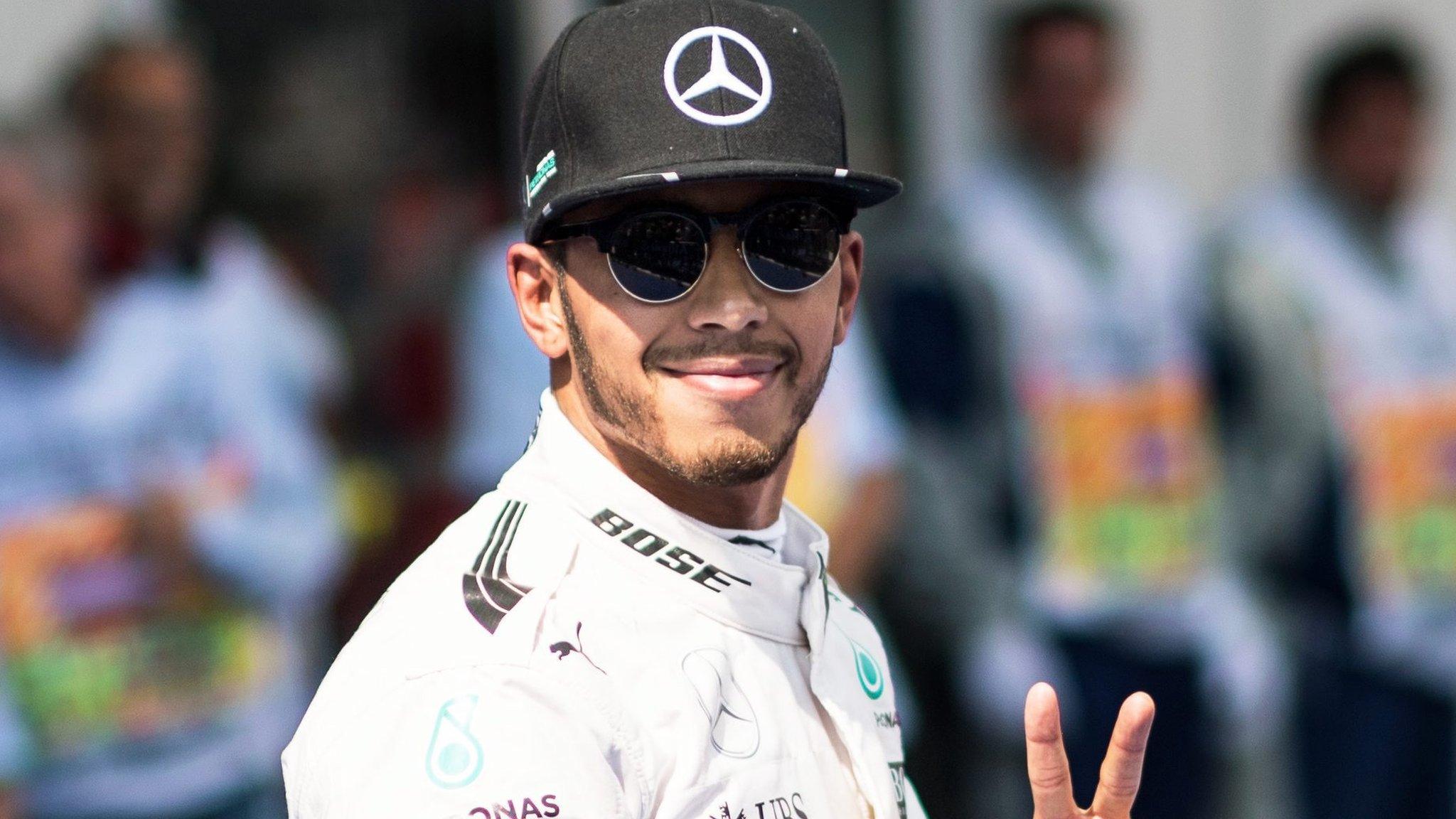
- Published28 June 2016
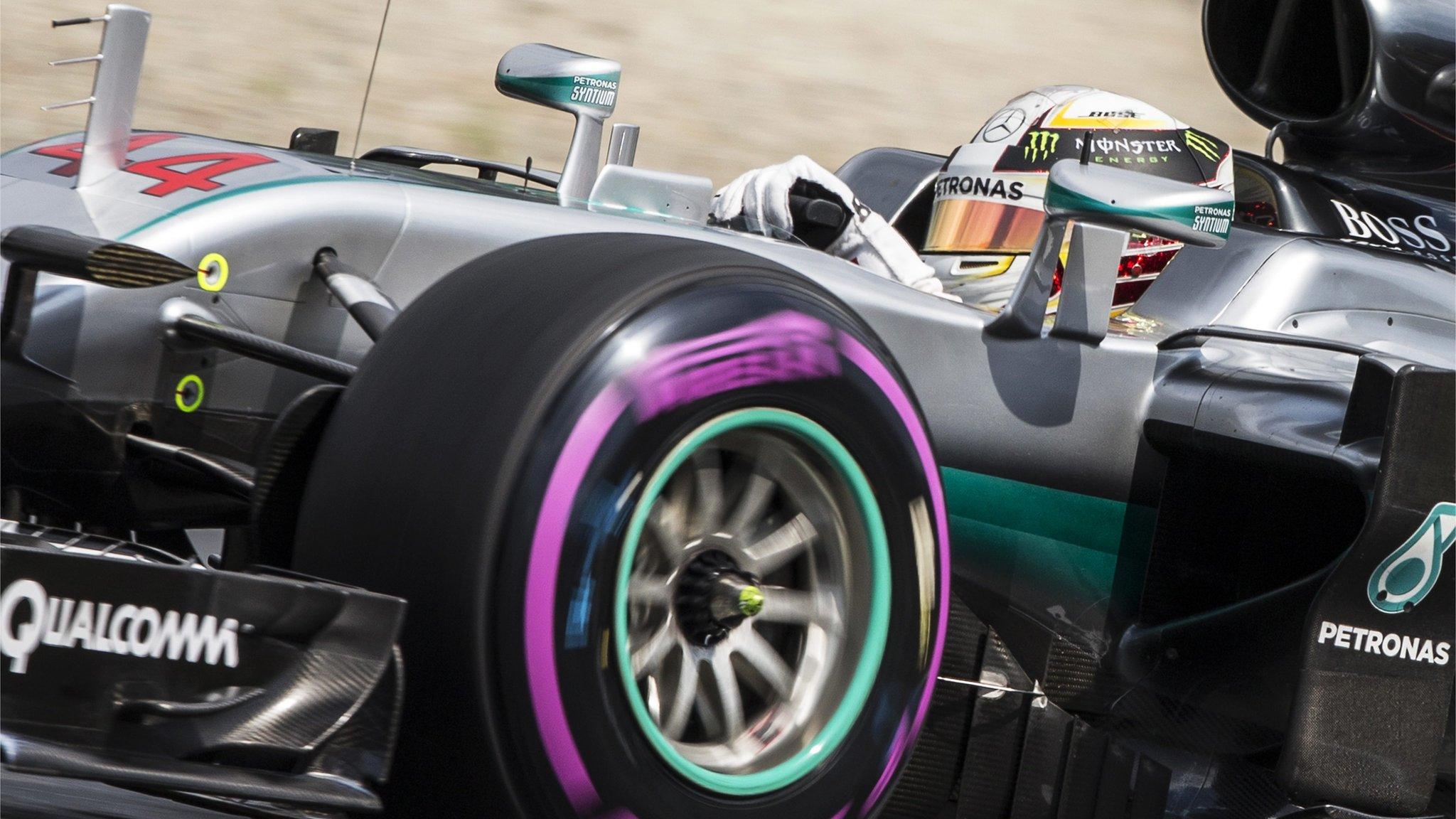
- Published2 July 2016
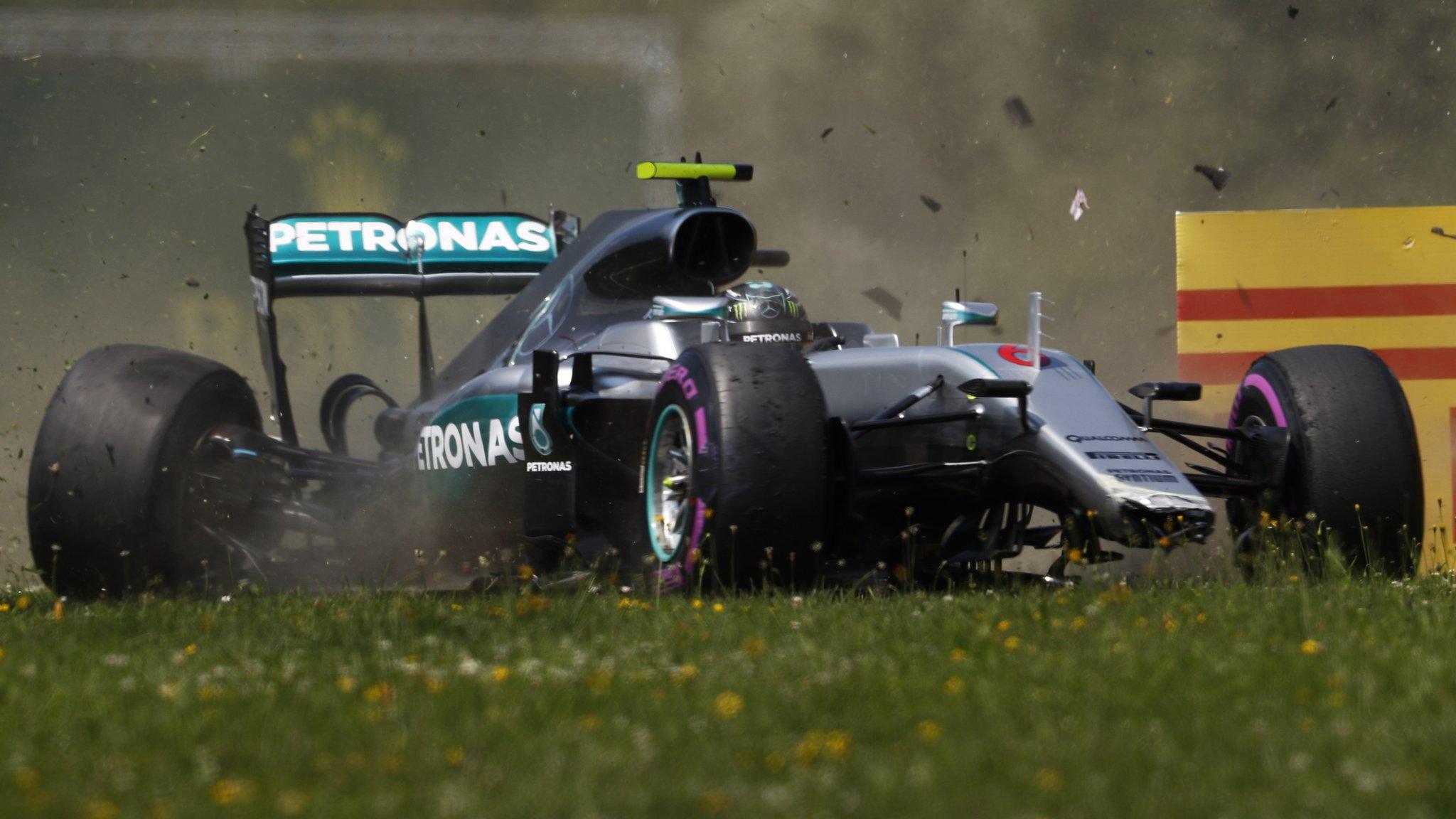
- Published1 July 2016
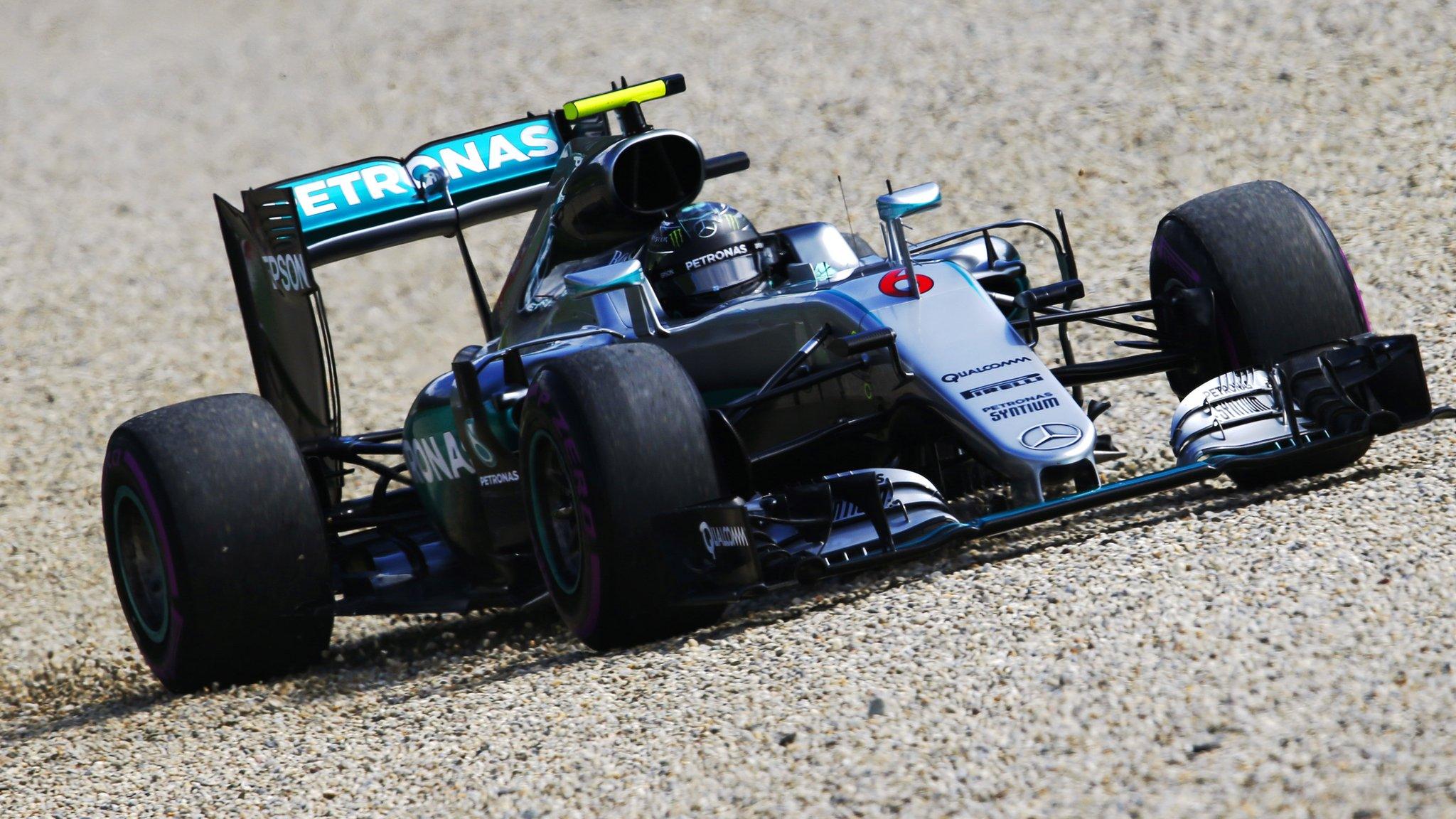
- Published2 July 2016

- Published1 July 2016
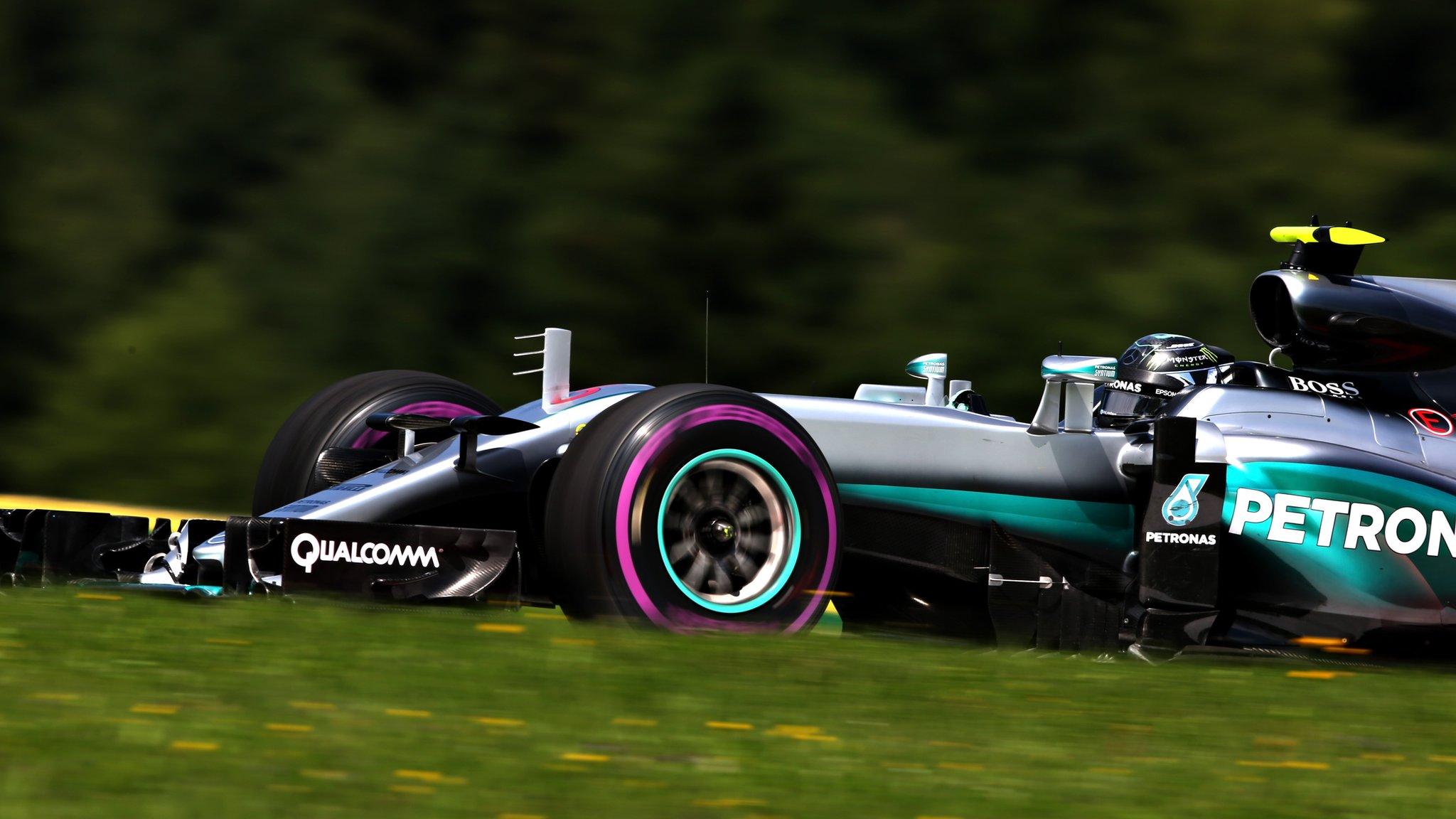
- Published1 July 2016
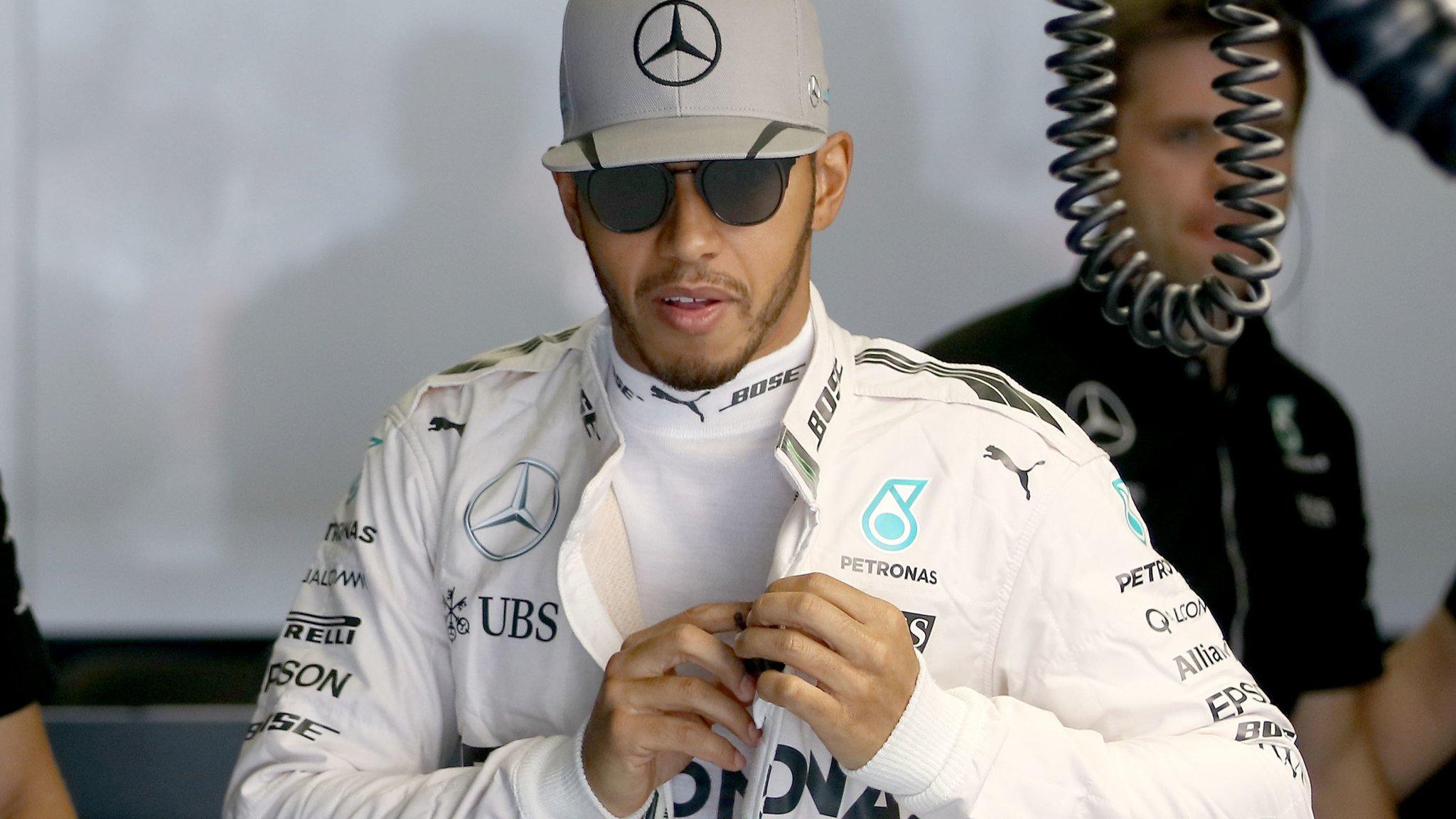
- Published26 June 2016
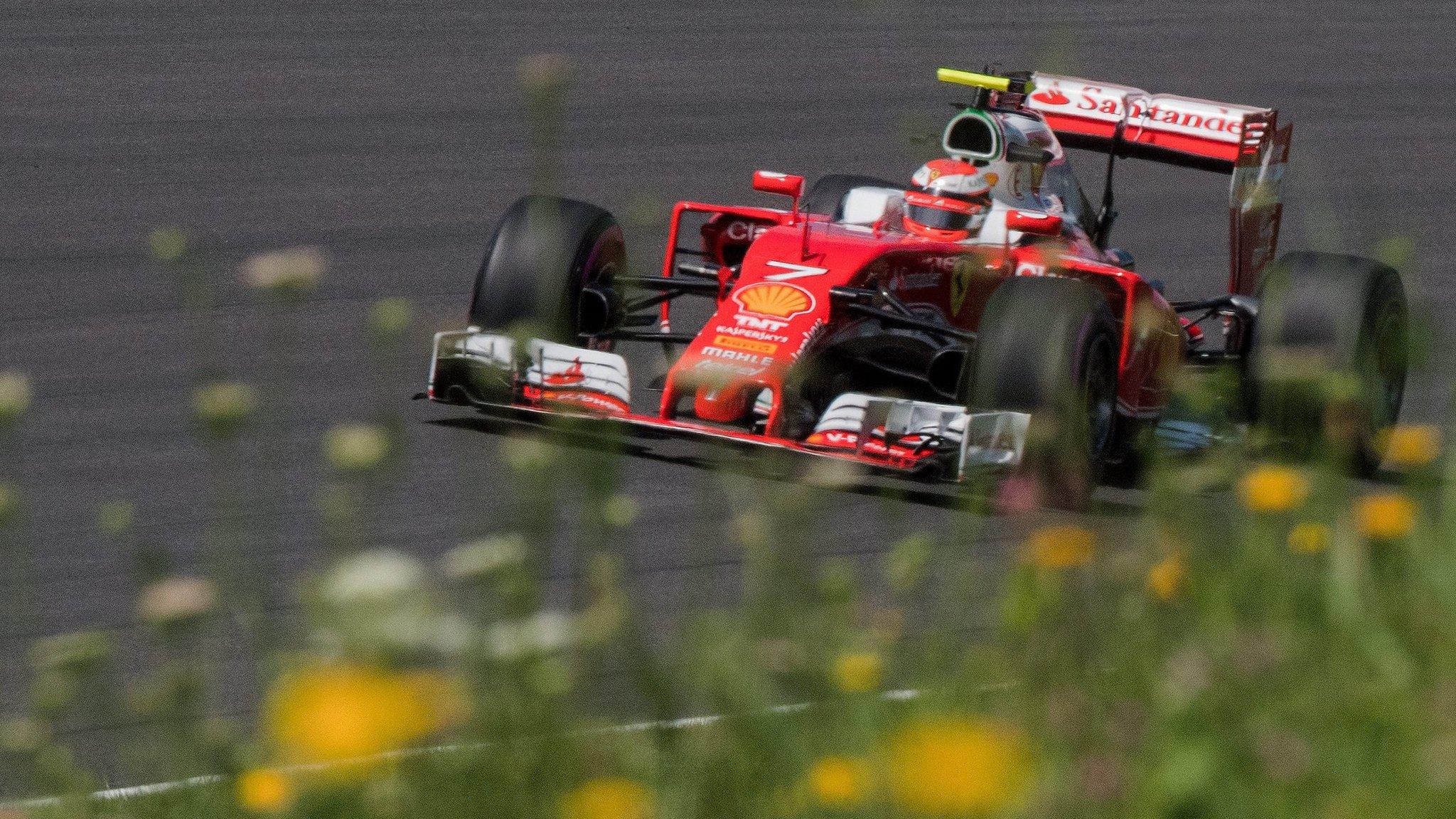
- Published30 June 2016
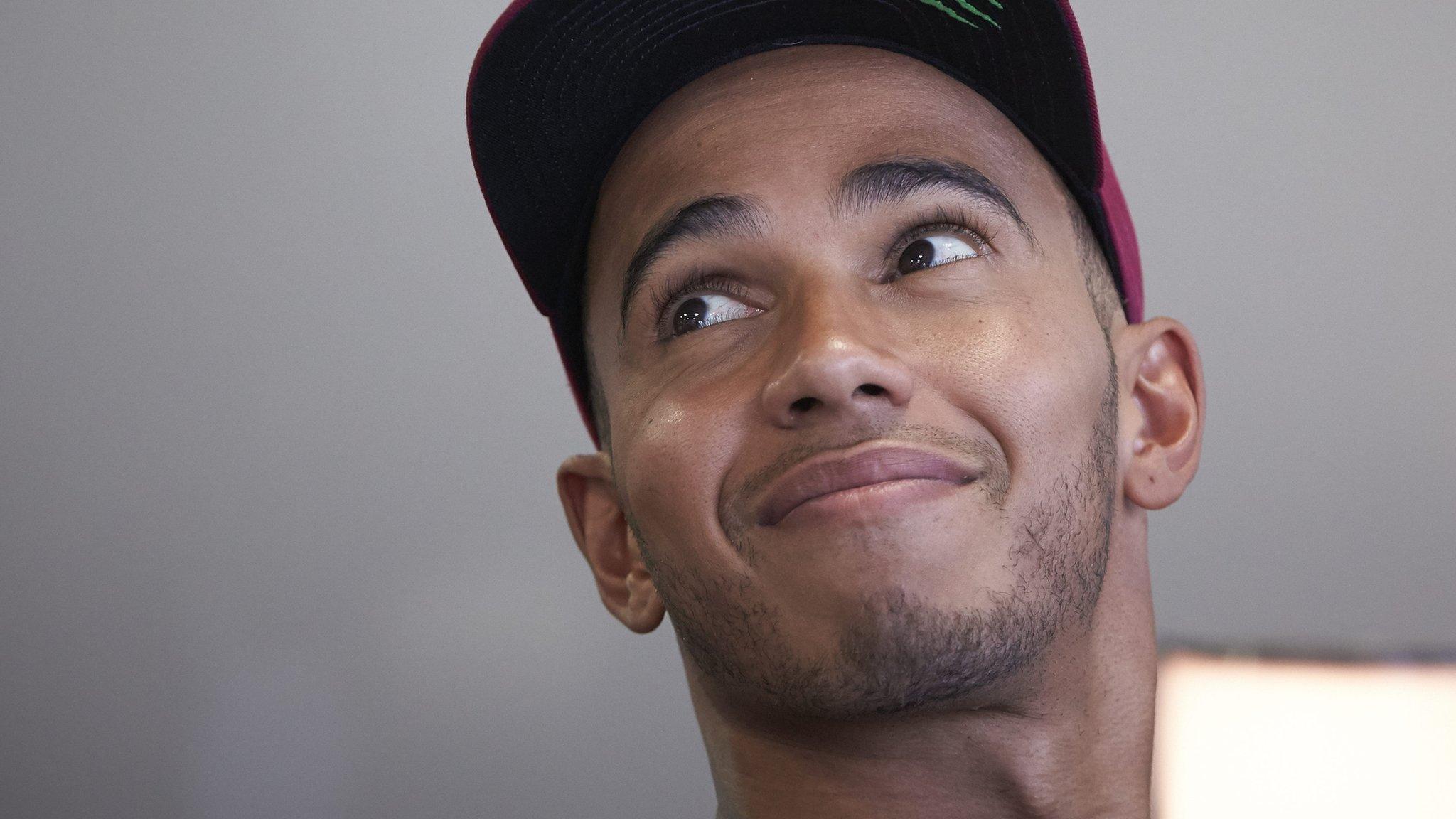
- Published30 June 2016

- Published30 June 2016
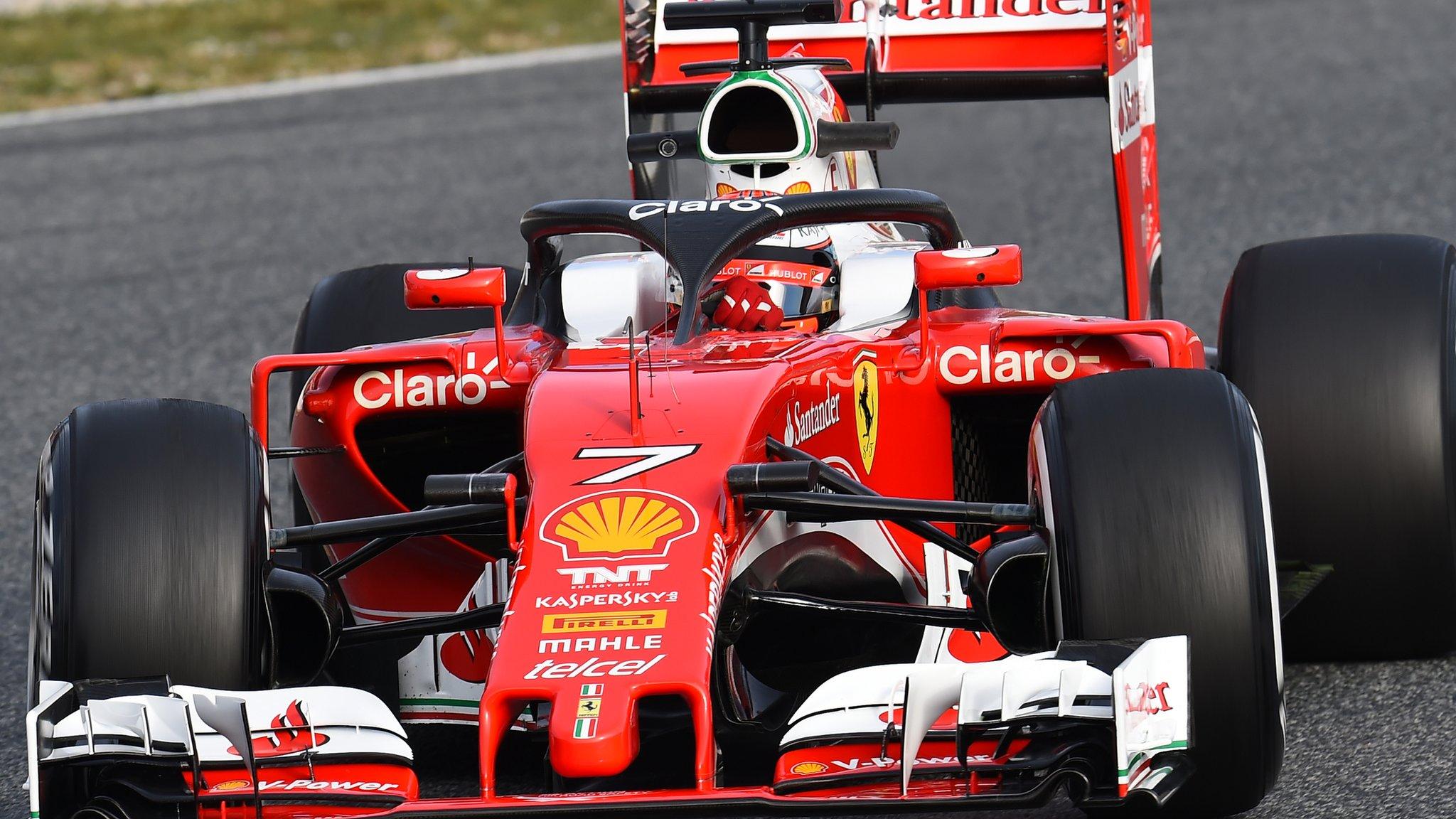
- Published28 June 2016

- Published1 July 2016
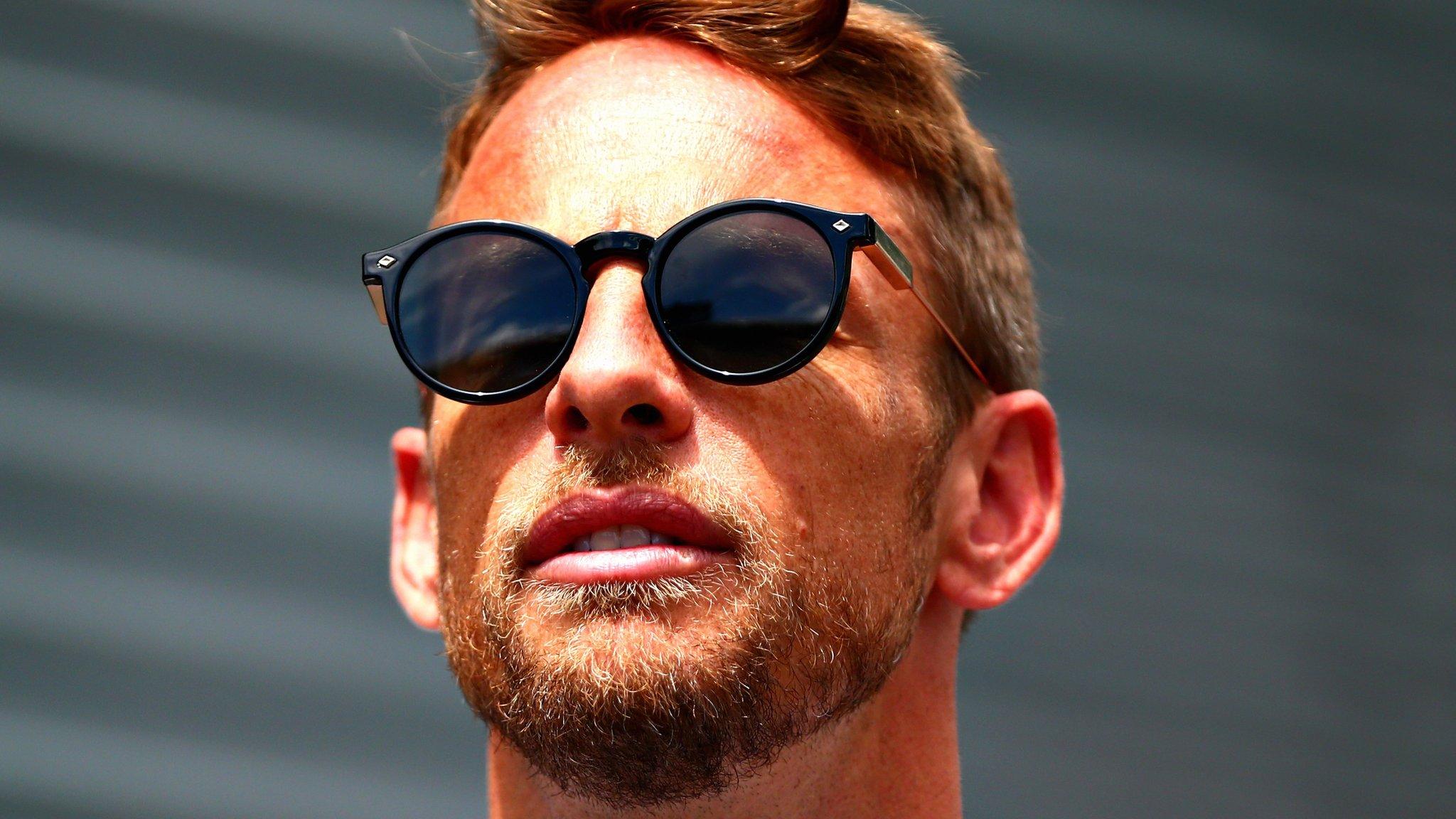
- Published29 June 2016
